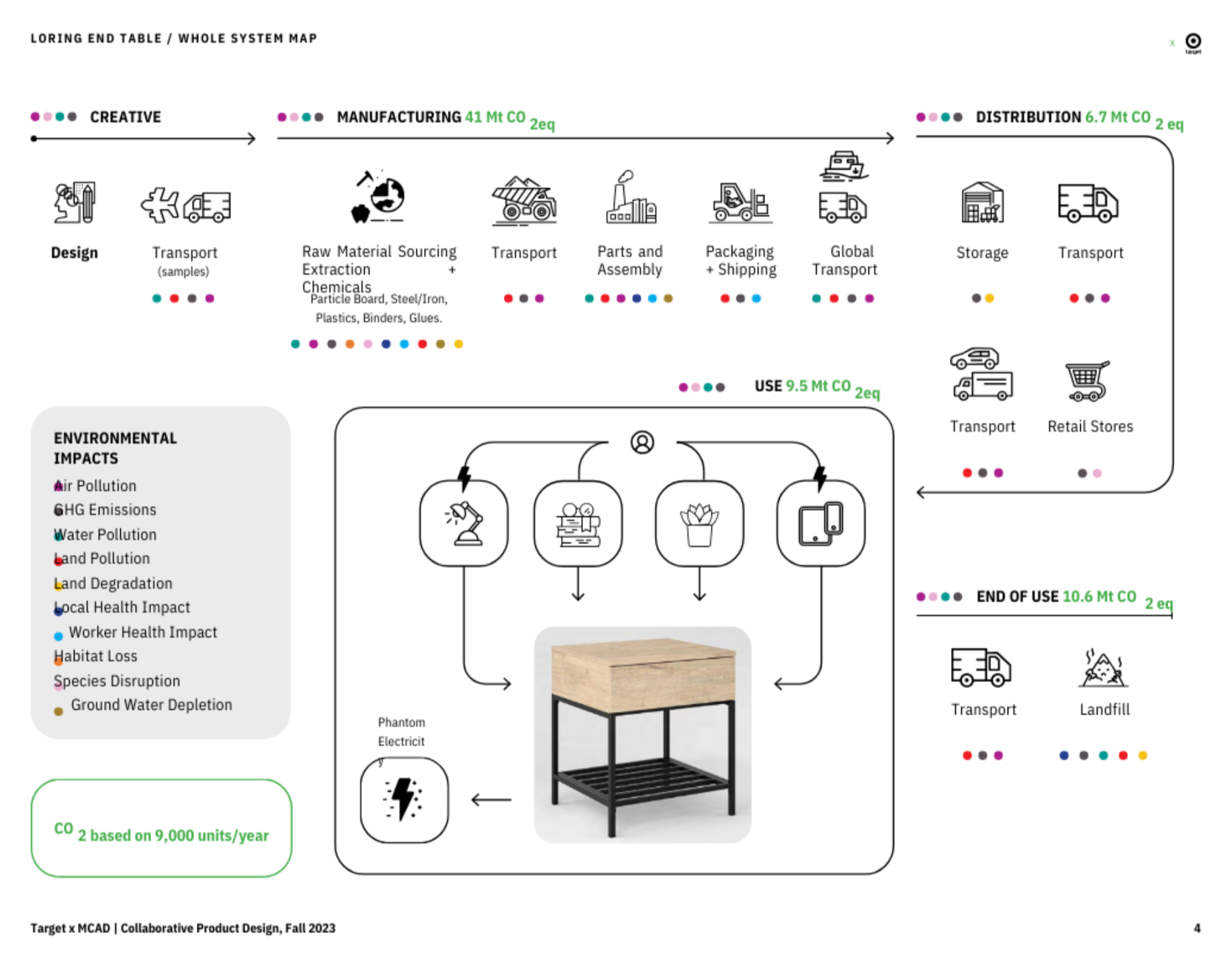Collaborative Product Design
This graduate course focused on integrating systems thinking and life cycle assessment (LCA) to redesign real-world products for sustainability, teaching students to map systems such as material flows, energy use, supply chains, and user interactions to identify leverage points for impactful change. Students worked with real-world clients, performing LCAs, sensitivity analyses, and collaboratively creating detailed design briefs that balanced environmental, social, and business priorities. The course explored diverse design lenses, including biomimicry, circular design, persuasive design, behavior change, and sustainable marketing, equipping students to develop innovative, sustainable solutions while effectively communicating their environmental and social value.
Loring End Table Eco Re-Design for Target Corp.
This research project developed a design brief for the eco-redesign of Target Corp.'s Loring End Table, focusing on reducing CO₂ emissions by 50%, doubling the product's lifecycle, minimizing phantom energy consumption by 60%, and ensuring sustainability without compromising quality, functionality, or cost neutrality. It incorporated behavior design for sustainability, innovative material exploration, and life cycle assessments (LCAs) with sensitivity analyses to identify key environmental impacts, prioritize material simplification, and explore opportunities for circularity within the product system.
This final design brief was presented to Target Corp but does not encompass the entirety of the research conducted by the team. Several prior meetings with Target Corp included additional design briefs leading up to this final presentation.
See the research:

